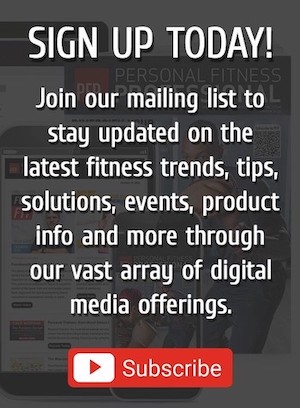In the past seven and half years I have more than 150 employees in my various businesses. We've had times of high turnover and no turnover, in fact even writing about it is very humbling. In short I've made a lot of mistakes when it comes to hiring the right people and building an effective team; but with mistakes come progress and valuable lessons. Lessons I can now share with you.
Where to recruit from
Hands down the best place to recruit new people for your team is from your client and prospect lists. These people are always the most passionate about and have the greatest understanding of what you do. Yes they will need training, but you can't train passion or loyalty for your vision.
The next place to turn to is post-secondary institutions. Do everything you can to become a regular speaker to graduating classes in physical fields. Work to set up practicum and work experience relationships and if they offer placement channels try to make sure you're listed in them.
The final place will be online, ranging from classifieds to social media.
How to write an effective recruitment ad
I came across an article on LinkedIn not too long ago that changed everything for me. The article was written by a recruiter named Lou Adler.
 He talked about our tendency to write a people description rather than a job description. I don't know about you but I was very guilty of this. I'd write recruiting ads listing the qualities and skills I thought the person needed to have. I would entice them with all the great things I felt we had to offer. Truth is as it turns out when my vision or perception of these things is on paper how you feel about them is very different than I do. In many cases the marketer in me painted a picture that people were excited about, but it failed often to identify who would commit fully to what was really required to win. As my businesses grew, as I started to separate myself, as my teams got larger big problems developed. Retention began to slide, team members didn't always seem to go the extra mile or express the same diligence and passion in all the things the way I would have.
He talked about our tendency to write a people description rather than a job description. I don't know about you but I was very guilty of this. I'd write recruiting ads listing the qualities and skills I thought the person needed to have. I would entice them with all the great things I felt we had to offer. Truth is as it turns out when my vision or perception of these things is on paper how you feel about them is very different than I do. In many cases the marketer in me painted a picture that people were excited about, but it failed often to identify who would commit fully to what was really required to win. As my businesses grew, as I started to separate myself, as my teams got larger big problems developed. Retention began to slide, team members didn't always seem to go the extra mile or express the same diligence and passion in all the things the way I would have.
As a result they became frustrated and discouraged, retention declined, staff turned over. The answers at first seemed logical, institute more systems, higher standards, greater rules and checklist to act as a quality control. Management expenses increased yet retention didn't greatly improve, nor did turnover drastically decrease.
Systems are critical but they only go so far, the right people will do the right things with little guidance the wrong people unfortunately won't. That's not to say they're bad people, it's just what I call a "Jim Collins Good to Great moment," I've learned now this is what he meant by, "the wrong people in the wrong seats of the bus."
Thanks to Lou Adler I learned the solution to this starts with the job description.
Start by identifying the actual tasks they will spend most of their day doing, a position title can be really deceiving.
Once you have a list of tasks spend some time thinking about the little things that make the "truly great" different. For example one sentence in my trainer recruitment ad now reads, "truly great trainers realize the real job is outside the session in the preparation and follow up they must continually do."
If you're like me I found I had a tendency to think of recruiting like marketing, shining light on all the highlights of the position and burying the things people might enjoy as much. Bring this seemingly less desirable tasks into the same light, as I'm sure you'd much rather hire people excited about those oh so important details.
Finally, the interview
Use situational questions. "Tell me about a time when you..." Watch out for, "I think I would..." answers. You want to discern what this person may be like to manage on a bad day.
Ask what they're greatest accomplishment that they are most proud of is, you might be surprised at what you learn.
Ask about their values, principles and beliefs, ask them to describe what they think yours mean. Recently I've been able to learn from executives from some of the worlds biggest brands (Red Bull, Westjet, and Tim Horton's so far being some of my favorites) and my first big takeaway is how valuecentric they all are when it comes to their teams.
You'll have many lessons to learn as you continually work to develop your team but hopefully this helps. With that I will leave you with a few final words of wisdom from another important influence, Dan Kennedy, "don't be afraid, it's imperative to fire fast and hire slow." That is something else I fell prey to, keeping the wrong people too long!
Where to recruit from
Hands down the best place to recruit new people for your team is from your client and prospect lists. These people are always the most passionate about and have the greatest understanding of what you do. Yes they will need training, but you can't train passion or loyalty for your vision.
The next place to turn to is post-secondary institutions. Do everything you can to become a regular speaker to graduating classes in physical fields. Work to set up practicum and work experience relationships and if they offer placement channels try to make sure you're listed in them.
The final place will be online, ranging from classifieds to social media.
How to write an effective recruitment ad
I came across an article on LinkedIn not too long ago that changed everything for me. The article was written by a recruiter named Lou Adler.

As a result they became frustrated and discouraged, retention declined, staff turned over. The answers at first seemed logical, institute more systems, higher standards, greater rules and checklist to act as a quality control. Management expenses increased yet retention didn't greatly improve, nor did turnover drastically decrease.
Systems are critical but they only go so far, the right people will do the right things with little guidance the wrong people unfortunately won't. That's not to say they're bad people, it's just what I call a "Jim Collins Good to Great moment," I've learned now this is what he meant by, "the wrong people in the wrong seats of the bus."
Thanks to Lou Adler I learned the solution to this starts with the job description.
Start by identifying the actual tasks they will spend most of their day doing, a position title can be really deceiving.
Once you have a list of tasks spend some time thinking about the little things that make the "truly great" different. For example one sentence in my trainer recruitment ad now reads, "truly great trainers realize the real job is outside the session in the preparation and follow up they must continually do."
If you're like me I found I had a tendency to think of recruiting like marketing, shining light on all the highlights of the position and burying the things people might enjoy as much. Bring this seemingly less desirable tasks into the same light, as I'm sure you'd much rather hire people excited about those oh so important details.
Finally, the interview
Use situational questions. "Tell me about a time when you..." Watch out for, "I think I would..." answers. You want to discern what this person may be like to manage on a bad day.
Ask what they're greatest accomplishment that they are most proud of is, you might be surprised at what you learn.
Ask about their values, principles and beliefs, ask them to describe what they think yours mean. Recently I've been able to learn from executives from some of the worlds biggest brands (Red Bull, Westjet, and Tim Horton's so far being some of my favorites) and my first big takeaway is how valuecentric they all are when it comes to their teams.
You'll have many lessons to learn as you continually work to develop your team but hopefully this helps. With that I will leave you with a few final words of wisdom from another important influence, Dan Kennedy, "don't be afraid, it's imperative to fire fast and hire slow." That is something else I fell prey to, keeping the wrong people too long!




















